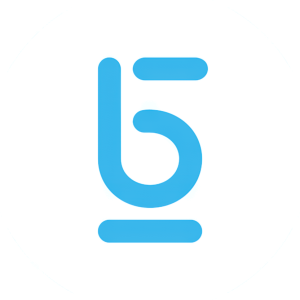Berkeley Lights to Present on Cell Line Development of Complex Molecules and Accelerating Antibody Discovery Against Difficult Targets at 13th Annual PEGS Europe
Berkeley Lights, Inc. (Nasdaq: BLI) announced its participation at the 13th Annual PEGS Europe from November 2-4, 2021, in Barcelona. At this summit, Berkeley Lights will present innovative strategies for antibody discovery using the Beacon® Optofluidic System. Key presentations include:
- Bringing Product Quality Assessment into Early Clone Selection on November 2, highlighting its Opto™ CLD workflow.
- Leave No Hit Behind on November 3, showcasing the OPBD 4.0 workflow for lead molecule discovery.
Additionally, CEO Tracey Mullen from Abveris will present lessons learned from two years of data using the Beacon system on November 4.
- None.
- None.
Insights
Analyzing...
Abveris, top clinical research organization, to report two-year data and results achieved from the Berkeley Lights Beacon® Optofluidic System for antibody discovery
EMERYVILLE, Calif., Nov. 01, 2021 (GLOBE NEWSWIRE) -- Berkeley Lights, Inc. (Nasdaq: BLI), a leader in digital cell biology, today announced its participation at the 13th Annual PEGS Europe: Protein & Antibody Engineering Summit, being held virtually and in person from November 2-4, 2021, in Barcelona, Spain. PEGS is one of the industry’s most preeminent events that inspires accelerated biotherapeutic protein drug development.
Berkeley Lights scientists will lead two presentations at PEGS Europe in the Antibody Engineering and Cell Line Engineering tracks:
- “Bringing Product Quality Assessment into Early Clone Selection with Opto™ Cell Line Development” on November 2, 2021, from 12:25 p.m. – 12:55 p.m. UTC+1.
In this presentation, participants will learn how to successfully mitigate some of the bottlenecks inherent with CHO cell line selection, particularly for complex molecules like bispecifics, by using the Opto™ CLD workflow on the Beacon® system. The workflow accelerates early cell line development (CLD) by integrating high throughput cell sorting, cloning, culture, productivity, growth, and product quality assays into a single, five-day automated process. Berkeley Lights will also introduce new capabilities, including on-chip detection of product aggregates and contaminating byproducts, that pinpoint the best clones early on – saving valuable development time while de-risking the path to IND.
- “Leave No Hit Behind: Accelerating Lead Molecule Discovery Against Difficult Targets,” on Wednesday, November 3 from 9:30 a.m. – 10:00 a.m. UTC +1.
In this presentation, participants will learn how Berkeley Lights’ Opto™ Plasma B Discovery (OPBD) 4.0 workflow enables recovery of 1000s of hits by screening up to 100,000 plasma cells, down-selection of lead candidates by functional screening, and sequencing and re-expression of >1000 functionally characterized antibodies in one week. By maximizing the diversity of antibodies through direct functional profiling of plasma cells, the OPBD 4.0 workflow allows users to tackle even the most challenging targets.
Presentation by Abveris
Tracey Mullen, Chief Executive Officer of Abveris, will share lessons learned based on two years of data and results from the use of the Beacon system for antibody discovery on behalf of partners across the industry, on November 4, 2021, from 11:45 a.m. – 12:15 p.m. UTC+1. In this presentation, titled “Lessons Learned from 2+ Years of Discovering Functional Antibodies on the Beacon,” participants will learn how Abveris employs the Beacon system to enable deep characterization of single B cells in multiple sequential assays under accelerated timelines compared to traditional antibody capture and screening methodologies. Abveris’ industry-leading experience with the Beacon system enables high-throughput and high-resolution screening of antibodies to deliver rare, ideal antibodies for reagent and therapeutic purposes, especially against difficult-to-target cell surface receptors, such as GPCRs and ion channels.
About Berkeley Lights
Berkeley Lights is a leading digital cell biology company focused on enabling and accelerating the rapid development and commercialization of biotherapeutics and other cell-based products for our customers. The Berkeley Lights Platform captures deep phenotypic, functional and genotypic information for thousands of single cells in parallel and can also deliver the live biology customers desire in the form of the best cells. Our platform is a fully integrated, end-to-end solution, comprising proprietary consumables, including our OptoSelect™ chips and reagent kits, advanced automation systems, and application software. We developed the Berkeley Lights Platform to provide the most advanced environment for rapid functional characterization of single cells at scale, the goal of which is to establish an industry standard for our customers throughout their cell-based product value chain.
Berkeley Lights’ Beacon® and Lightning™ systems and Culture Station™ instrument are FOR RESEARCH USE ONLY. Not for use in diagnostic procedures.
Forward-Looking Statements
To the extent that statements contained in this press release are not descriptions of historical facts regarding Berkeley Lights or its products, they are forward-looking statements reflecting the current beliefs and expectations of management. Such forward-looking statements involve substantial known and unknown risks and uncertainties that relate to future events, and actual results and product performance could differ significantly from those expressed or implied by the forward-looking statements. Berkeley Lights undertakes no obligation to update or revise any forward-looking statements. For a further description of the risks and uncertainties relating to the Company’s growth and continual evolution see the statements in the "Risk Factors" sections, and elsewhere, in our filings with the U.S. Securities and Exchange Commission.
Media Contact
Media@berkeleylights.com
Investor Contact
IR@berkeleylights.com








